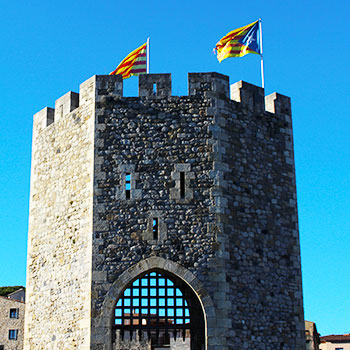Cultural Resource Management: Museums, Heritage & Galleries
International Business Program
Barcelona, Spain
Dates: 9/4/19 - 12/21/19

Cultural Resource Management: Museums, Heritage & Galleries
OVERVIEW
CEA CAPA Partner Institution: CEA CAPA Barcelona Center
Location: Barcelona, Spain
Primary Subject Area: Cultural Studies
Instruction in: English
Course Code: CUL323BCN
Transcript Source: University of New Haven
Course Details: Level 300
Recommended Semester Credits: 3
Contact Hours: 45
Prerequisites: Two 100-level courses or one 200-level course in any of the following: History, Anthropology, Sociology, or Cultural Studies
DESCRIPTION
Cultural Resource Management (CRM) is the process by which a community's cultural resources - including museums, art galleries, theatres, heritage sites, etc. - are preserved and exhibited for public use. Cultural resources include physical assets such as paintings, sculptures, architecture, and artifacts as well as intangible resources such as folklore, music, and oral story telling. In this course, you will investigate the phenomenon surrounding CRM, including how cultural resources impact the identity, prosperity, and well-being of their communities.
As part of this work, you will be challenged to consider the social and cultural influences that determine which cultural resources are collected/preserved, and ultimately, whose stories in the community are told. Beyond this, you will also consider the different techniques for exhibition. While some works of art can 'speak for themselves,' many cultural resources cannot; it becomes the challenge of CRM to determine how to exhibit these resources in a conceptual framework that renders them intelligible to their community.
The past 25 years have marked a global boom in CRM. With new museums ranging from Picasso to sneakers, it has become more important than ever to consider the historical, political, and ethical factors that determine how these cultural resources are managed. As a student in this course, you will benefit from field trips to the many cultural sites that have arisen throughout the city since Barcelona's adoption of a strong 'cultural policy' in the 1990s.
This course will consider the history, politics, and ethics of modern-day exhibitions as well as the social and cultural influences that led to their curation. Using European and North American examples, you will learn techniques for critically analyzing exhibitions and historic sites while also gaining practical experience in planning an interpretive exhibition.
As part of this work, you will be challenged to consider the social and cultural influences that determine which cultural resources are collected/preserved, and ultimately, whose stories in the community are told. Beyond this, you will also consider the different techniques for exhibition. While some works of art can 'speak for themselves,' many cultural resources cannot; it becomes the challenge of CRM to determine how to exhibit these resources in a conceptual framework that renders them intelligible to their community.
The past 25 years have marked a global boom in CRM. With new museums ranging from Picasso to sneakers, it has become more important than ever to consider the historical, political, and ethical factors that determine how these cultural resources are managed. As a student in this course, you will benefit from field trips to the many cultural sites that have arisen throughout the city since Barcelona's adoption of a strong 'cultural policy' in the 1990s.
This course will consider the history, politics, and ethics of modern-day exhibitions as well as the social and cultural influences that led to their curation. Using European and North American examples, you will learn techniques for critically analyzing exhibitions and historic sites while also gaining practical experience in planning an interpretive exhibition.










